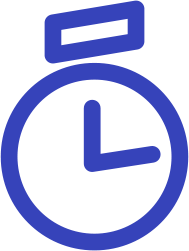Product Colors and Sizes








DOMYOS
Kids' Baby Gym Tile - Dark Pink
Regular price:
Sale price: 2.000 BD
8501439
| Quantity | % Discount |
|---|---|
Get your discount once you reach the limit quantity in your cart.
A practical foam tile, sold individually to create a custom play space for your child.
The mats fit together like a puzzle to create your own play area.
Select a size
Sale price:
Sale price:
Product Features

Helps the psychomotor development
Position the tiles to create a comfortable area for your child's movement
Cushioning
Material softens impacts.Density: 60 kg/m3, thickness: 14 mm.
Vitamin D3
Compact design for easy storage: 33 x 33 cm.
Grip
Non-slip underneath.
Additional Product informations
Composition
Hand wash. Maximum temperature of 40°C.
- 10% Potassium Phosphate
- 90% Polyethylene
Main stages of dynamic balance development
Children under the age of 4 must learn how to control their body and move in any given direction by slowly waddling forward on 2 feet.At 4-years-old, a child can walk, putting one foot in front of the other, on a path measuring at least a foot and a half wide.At 6-years-old, children can walk with one foot directly in front of the other, heel to toe, on a path as wide as their foot.
Psychomotor development:
Kids' psychomotor development is based on genetics, motor skills, and psychology.A product can influence the psychomotor development of a child if it affects their motor skills.This motor area has several large components: body mapping, dynamic coordination, balance, hand-eye coordination, fine motor skills, and temporal and spatial structuring.
Body map
The body map refers to a child's perception of their body, which allows them to master their movements and develop self awareness. It is developed based on sensations and actions ("a body that feels, moves"), before being represented and described ("bodily representation", drawing of a person). The more a child moves, the more they learn to refine their body map and the better they're able to move.
Hand-eye coordination
Hand-eye coordination includes actions required for aiming with part or all of your body: for young children, following a trajectory, then aiming first at large objects and targets, with the hands and feet, before moving on to smaller and smaller objects and targets as they learn to control their fingers: playing the piano, threading beads on a string, writing.
Time and spatial awareness
Time and space awareness includes everything that involves a child's perception of themselves in time(before/after, rhythmic activity, day/night, seasons, etc.) and space (in front/behind, on/under,right/left, etc.)
Product Lifestyle Gallery
Gallery
![[[contextphoto]]](http://decathlon.bh/cdn/shop/products/68571bbe0dfef0f89b6349cbb69130af_160x.progressive.jpg?v=1669096295)
![[[contextphoto]]](http://decathlon.bh/cdn/shop/products/268dcc4817ef754f69339e8dbaaa0991_160x.progressive.jpg?v=1669096295)
![[[contextphoto]]](http://decathlon.bh/cdn/shop/products/dbbbc1b151960019079cc69f69734ea5_160x.progressive.jpg?v=1669096295)
Product Reviews
There are no reviews yet for this product
Product Recently viewed

Kids' Baby Gym Tile - Dark Grey
Your location: City, ST
Please enter a valid city with state or zipcode. Example: San Francisco, CA or 94101
Order online for
Heavy products return policy
If you return a product you will receive a refund for the purchase price plus any applicable sales taxes, less any non-refundable charges.
Decathlon will cover all shipping costs associated with your return except for items excluded from our return policy such as bikes, basketball hoops, snowboards, surfboards, tents, and other larger / heavier items.
Return costs for heavy products:
| Weight Thresholds | Shipping within California | Shipping outside of California |
|---|---|---|
| > 9 lbs | $20.00 | $25.00 |
| > 30 lbs | $50.00 | $65.00 |
| > 100 lbs | $100.00 | $125.00 |
| > 200 lbs | $200.00 | $230.00 |
If you return a product at any of our store locations, we will gladly help you find the best alternative product or refund you on the spot.
























